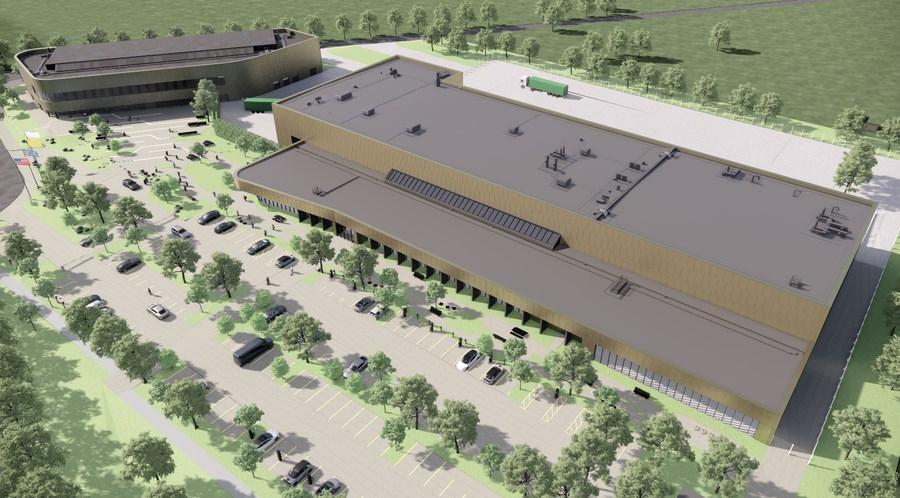Moderna picks Oxfordshire for UK facility

Moderna's planned Harwell site
US biotech Moderna has chosen the location of its promised new R&D facility in the UK, selecting the Harwell Science Campus in Oxfordshire to site the unit.
Harwell houses a 700-acre health tech cluster that is home to more than 70 organisations and employs more than 1,250 people, and lies within the UK’s so-called ‘golden triangle’ - a life sciences rich area stretching between London, Oxford, and Cambridge.
Moderna will rub shoulders there with the likes of the UK Health Security Agency (UKHSA), with which it is working on early vaccine development for future pandemic threats, as well as the Rosalind Franklin Institute, Oxford Nanopore, Agilent Technologies, and Karus Therapeutics, amongst others.
Moderna’s Innovation and Technology Centre (MITC) – first revealed last June and finalised in December – is expected to create more than 150 highly skilled jobs and have the capacity to produce up to 250 million vaccines per year in the event of a pandemic. It has a target of being able to develop vaccines against emerging threats within 100 days.
The biotech said that the MITC will be used to provide the UK with access to mRNA vaccines for a wide range of respiratory diseases, with a drug substance and manufacturing suite that will be constructed by IPS. The MITC will also be linked to a clinical biomarker laboratory in Cramlington, Northumberland, that will be built by Merit.
The 10-year alliance between the UK and Moderna will also see the biotech run a number of clinical trials in the UK ,as well as provide grant funding to UK universities.
The UK government has been quick to trumpet the new announcement, with Minister for Investment Dominic Johnson saying the deal would have the effect of “boosting economic growth, generating high-value jobs, and supporting our NHS.”
He added that Moderna is “a key partner in the UK’s journey to become a science and technology superpower.”
The news comes, however, amid a rising swell of dissenting voices who suggest that the UK is going backwards, rather than forwards, in its attempts to nurture the life sciences sector.
While the government points to the Moderna alliance and a clinical partnership with BioNTech as evidence it is going in the right direction, there are real concerns about falling numbers of clinical trials, tax-related moves that have threatened R&D, and manufacturing capital investments, as well as increasing distance between the UK and its scientific partners in Europe.
Much of that was cited by AstraZeneca's chief executive, Pascal Soriot, as being among the reasons the pharma group decided to site a new manufacturing plant in the Republic of Ireland, rather than near its existing production hubs in the UK.
One factor causing trepidation amongst scientific leaders is Prime Minister Rishi Sunak’s reported reluctance to re-join the €95 billion ($102 billion) Horizon Europe R&D funding programme, organised by the EU, with the BBC reporting this morning that the government is not keen on re-joining under pre-Brexit membership terms.
Access to the Horizon framework was removed by the EU as a consequence of political wrangling over the Northern Ireland Protocol, covering the only land border between the UK and EU post-Brexit. With a new deal in place there had been expectations that the UK would return to the fold, but the news agency reports that Sunak is more keen on ‘Plan B’, a UK-led programme involving collaboration with non-EU as well as European nations.













